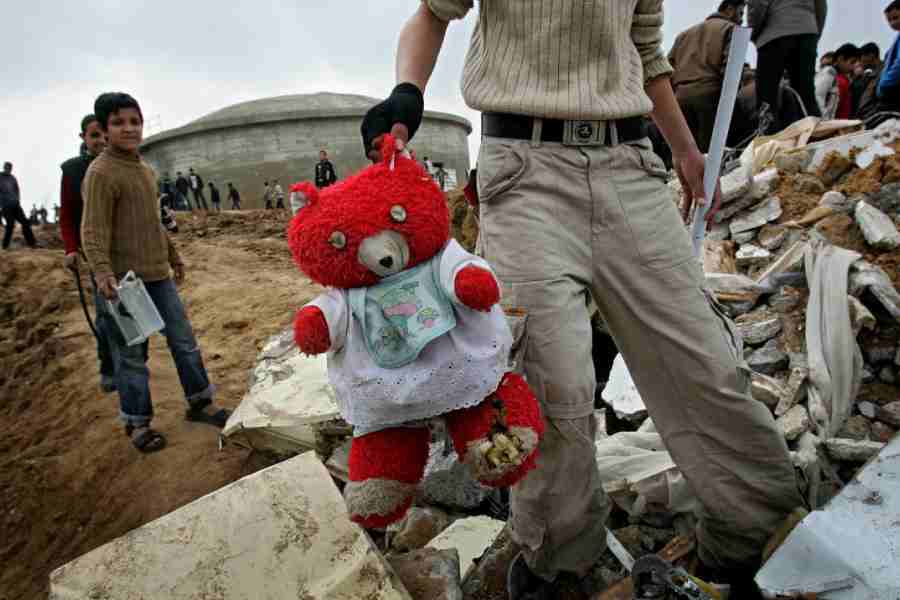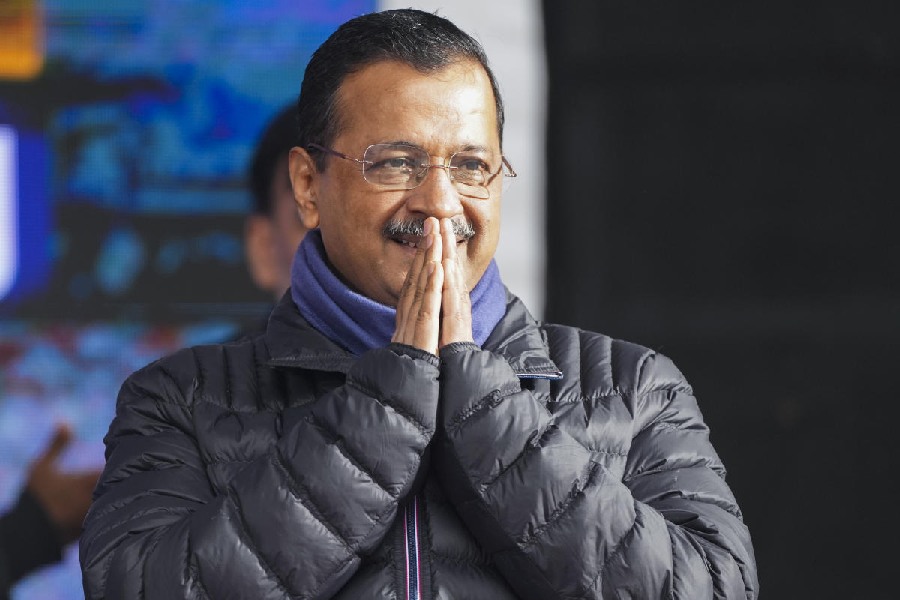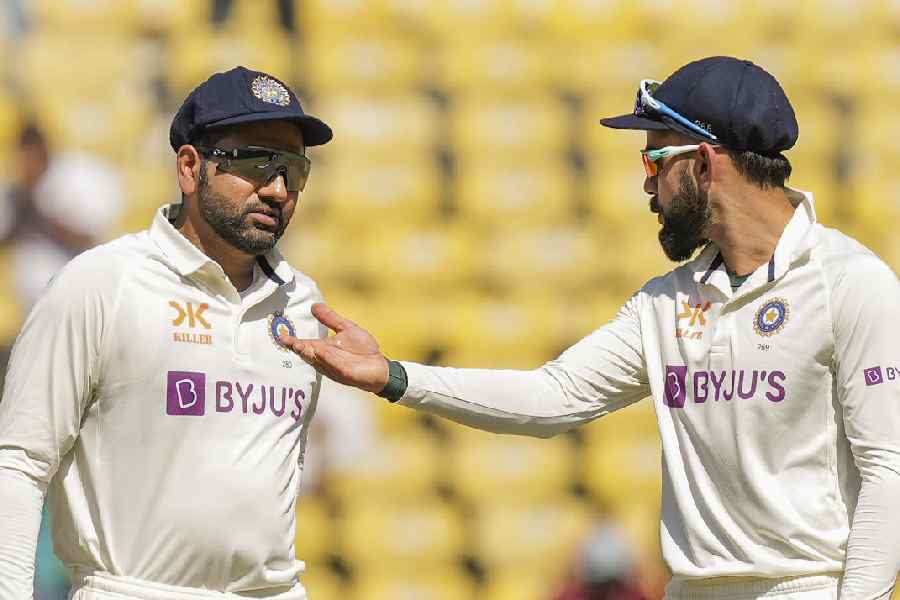Two weeks ago, talks about a ceasefire in Gaza were reportedly inching towards success. Predictably, the prospect has dimmed again. Yet on another issue, the world reached an accord virtually at the start of hostilities. What a pity the ceasefire talks are opposite in bent.
The point of accord is on demarcating Gaza as a zone where, virtually all nations agree, children (to say nothing of their elders) can be killed, maimed, starved and orphaned in thousands with impunity. Their tormentors might even plead self-defence and righteous indignation. On December 15, UNICEF reported at least 14,000 child deaths (out of 45,000 total deaths) in Gaza. This does not include those unidentified, missing or buried under rubble. According to Save the Children, 30% of the children killed till October 10 were under five; according to the UN Office for the Coordination of Humanitarian Affairs, 6% were under one. Among them, 169 had been born since the conflict began.
By October 30, OCHA estimated 35,000 children to have lost one or both parents. A million children have lost their homes. Like virtually all inhabitants of Gaza, they are in various stages of starvation. In such a situation, it seems fatuous to quote figures for child trauma; but the organization War Child Alliance found 96% of Gaza’s children to be mentally disoriented and in imminent fear of death. There is something monstrous in that a child should at all conceive of death, let alone fear it.
All the above figures are from reputable global agencies, though all of them, not excluding the United Nations, have been charged with conspiracy to misinform. It took just a few minutes to extract the data from the internet. In other words, the world knows what is happening and sees no reason to care, let alone intervene. Instead of growing outrage as the child deaths keep mounting, the world seems bored. It is enough for Israel to declare that an unspecified number of terrorists were eliminated in each bombardment and casualties kept to a minimum (again, no figures). News of Gaza casualties occupies a paragraph in the inner pages of newspapers, and days and weeks might pass before an Indian TV channel promotes news from Gaza beyond the ticker at the foot of the screen.
Mind you, we are all nice people. Very many nations, including our own, shake their heads and cluck at the ‘civilian deaths’ (wouldn’t it be great if these children didn’t have to die?) while conniving with the international order that makes them inevitable. Certain nations actively uphold and protect that order. The US government joins the choric murmur against civilian casualties while sustainedly providing arms to enable them, at least twice by presidential waiver of the required Congress approval. The Israeli tail wags the American dog.
Besides outliers like Pope Francis, the only parties that seem seriously concerned about the children’s plight are the UN and its agencies. But doesn’t the UN speak for the world? It is clearly laughable to imagine so. The UN speaks for nobody except its own notional self. The nations that formally constitute it thumb their noses at its homilies. Over the years, the United States of America has vetoed 49 resolutions seeking peace in the region, including four in the past year.
India saw fit to abstain more than once from UN resolutions calling for a ceasefire in Gaza. More disturbingly, and curiously for a democracy, pro-Palestinian sentiments have faced resistance and even prohibitions in India. Priyanka Gandhi’s Palestine handbag — whatever her motives for carrying it — was astonishingly linked to ‘appeasement politics’. Are we to refrain from commiserating with Palestinian children because they are Muslims? No less bizarrely, Yogi Adityanath lauded Israel for providing Indians with jobs including ‘free food and accommodation’. Surely the world’s fifth-largest economy, with a population of 1.4 billion, cannot be so hard-pressed as to condone horrific violence for the sake of a few thousand jobs? One is led to look for a deeper affinity of the spirit.
But let us not be distracted by Israel’s deeper wrongdoings. Its occupation of Gaza and the West Bank violates international law. Recent deliberations of the International Court of Justice and the International Human Rights Council have non-trivially evoked the terms ‘genocide’ and ‘crimes against humanity’. The irony is that the current Gaza war began with an act of terrorism against Israel, killing 1,200 people and taking some 250 hostages. Parties generally critical of Israel expressed support, even outrage. In little over a year, the wheel of destruction has turned so far in reverse, the Palestinian casualties are so dramatically greater, that the Hamas attack on Israel has lost its centrality in the discourse. At most, commentators cite it to avow their formal impartiality.
As I began by saying, this does not prevent worldwide acceptance, from the tacit to the open or even aggressive, of Israel’s unending campaign of revenge. But it does produce a curious contradiction in humanity’s overall response. The unrelenting suffering of the people of Gaza must be admitted before it is justified, or even highlighted to emphasize the fate that befalls those that provoke Israel. But once admitted, the suffering leaves its own impact beyond any justification.
Significantly, references to ‘civilian deaths’, and that devil’s coinage ‘collateral damage’, seldom specifically mention that the victims include thousands of children. It is as though the most ardent apologists for the carnage know this would be tactically wrong. The deals between nations contravene the gut humanity that insists, however silently and helplessly, on being horrendously disturbed that children should die in a war their uncorrupted spirits cannot understand.
International politics is necessarily transactional. Human lives, on the contrary, can never be purely such. The Machiavellian disjunct between public and private values does not work. Foreign policy might be dictated by our export prospects, or the need for jobs or weaponry or even spyware. But the ghosts of 14,000 dead children will keep haunting us, pleading for a world of humane values for our own children to grow up in.
Sukanta Chaudhuri is Professor Emeritus, Jadavpur University











